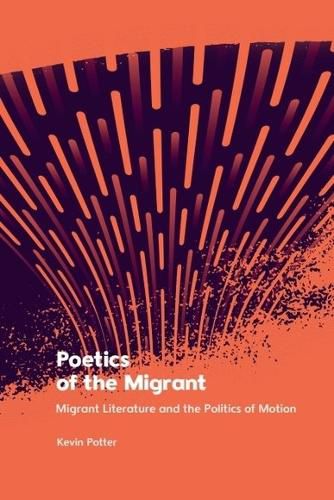Readings Newsletter
Become a Readings Member to make your shopping experience even easier.
Sign in or sign up for free!
You’re not far away from qualifying for FREE standard shipping within Australia
You’ve qualified for FREE standard shipping within Australia
The cart is loading…






Since the 1980s, readers and scholars alike have celebrated migrant literature for not only depicting migration, but for inspiring reflections on class, race, gender, nations, and mobility. But, beyond depicting migration, is it possible for migrant literature to be a force of movement itself? Poetics of the Migrant calls upon the philosophy of movement and a counter-history of migration to invent a theory and method for analysing migrant literature. The text uncovers patterns of movement that migrant texts enact and create in other words, a movement-oriented poetics. Poetics of the Migrant understands movement as the defining force of human history; and the migrant is the primary figure of cultural and political transformation. Migrant literature makes it possible to transform how we process and interpret social history through social motion. Perhaps, from here, we can imagine a different world: one where movement and migrancy are legible and thinkable.
$9.00 standard shipping within Australia
FREE standard shipping within Australia for orders over $100.00
Express & International shipping calculated at checkout
Since the 1980s, readers and scholars alike have celebrated migrant literature for not only depicting migration, but for inspiring reflections on class, race, gender, nations, and mobility. But, beyond depicting migration, is it possible for migrant literature to be a force of movement itself? Poetics of the Migrant calls upon the philosophy of movement and a counter-history of migration to invent a theory and method for analysing migrant literature. The text uncovers patterns of movement that migrant texts enact and create in other words, a movement-oriented poetics. Poetics of the Migrant understands movement as the defining force of human history; and the migrant is the primary figure of cultural and political transformation. Migrant literature makes it possible to transform how we process and interpret social history through social motion. Perhaps, from here, we can imagine a different world: one where movement and migrancy are legible and thinkable.